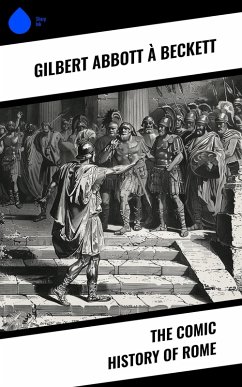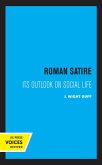In "The Comic History of Rome," Gilbert Abbott À Beckett employs a unique blend of humor and historical narrative to explore the paradoxes and absurdities of Roman history. Written in the mid-19th century, this engaging text combines satirical illustrations and witty prose, offering a playful yet incisive commentary on the complexities of Roman politics, societal norms, and cultural achievements. À Beckett's style echoes the traditions of comedic literature of his time, drawing parallels between the farcical elements of ancient Rome and the contemporary Victorian era, thereby inviting readers to reflect on the cyclical nature of history and human behavior. Gilbert Abbott À Beckett was an accomplished English writer and humorist, deeply influenced by the political and social upheavals of his time, which are evident in his works. With a strong background in both journalism and the theatrical arts, À Beckett skillfully blends veracity with parody, allowing his wit to illuminate the follies of both ancient and modern societies. His fervent interest in history and comedy serves as a catalyst for this work, reflecting his desire to make the past accessible and engaging to the public. Readers who appreciate history laced with humor will find "The Comic History of Rome" a delightful and enlightening experience. It not only serves as a historical account but also as a reminder of the enduring nature of human folly. This book is highly recommended for those seeking a fresh perspective on Roman history while enjoying À Beckett's sharp wit and engaging narrative style.
Dieser Download kann aus rechtlichen Gründen nur mit Rechnungsadresse in A, B, BG, CY, CZ, D, DK, EW, E, FIN, F, GR, HR, H, IRL, I, LT, L, LR, M, NL, PL, P, R, S, SLO, SK ausgeliefert werden.









